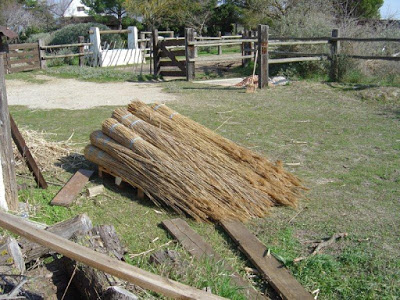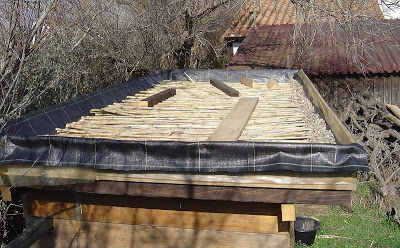In the realm of eco-conscious roofing solutions, Kevin Songer’s recent LinkedIn post unveils a captivating narrative centered around a naturally crafted green roof in Southern France. Departing from the conventional sea of plastic trays and components, this innovative rooftop marvel stands as a testament to the possibilities of sustainability and biodiversity.
Drawing inspiration from the LivingRoofs.org design guide, renowned for its rich repository of global green roof examples, Kevin’s blog, “Living Green Roofs,” offers a treasure trove of insights into this groundbreaking project. The chronological sequence of captivating photographs reveals a meticulous approach, beginning with the LivingRoofs.org design guide and culminating in an environmentally conscious roofing masterpiece.
What sets this project apart is its meticulous embrace of native flora, meticulously researched based on factors like bloom time, life cycle, biodiversity, water efficiency, and maintenance needs. Straying from the prevailing plastic-dominated narrative, the roof utilizes indigenous reed species, echoing historical roofing practices in the Mediterranean. The choice of Arundo reed, a locally favored roofing material, imparts a sense of continuity with tradition while exhibiting longevity comparable to conventional asphalt shingles.

This venture serves as a pivotal moment in the global evolution of green roof technology, challenging the prevailing stagnation in an industry saturated with plastic-centric systems. While many contemporary green roofs prioritize profit over ecological harmony, this French masterpiece defies the status quo. By showcasing native plants with ethnobotanical and biodiversity value, the project seamlessly integrates with the local ecosystem.
Critiquing the industry’s penchant for “greenwashing,” Kevin underscores the significance of this sustainable endeavor, highlighting its departure from monocultures of exotic plants housed in plastic trays. The woven geo-synthetic fabric, the sole non-local component, prompts contemplation about potential alternatives such as hemp fabric or cotton burlap, further emphasizing a commitment to natural materials.

Despite anticipated industry pushback citing long-term comparisons and maintenance ease, this green roof’s ingenuity and dedication to long-term biodiversity and sustainability elevate it beyond the typical turf or sedum-laden counterparts. It sets a new benchmark for authentic green roofs, inspiring a paradigm shift towards eco-friendly design choices.As the photographs invite viewers to appreciate the aesthetic beauty of native and natural materials, this green roof’s silent rebellion against black plastics and overused plants resonates as a beacon of hope for future sustainable architecture. For those seeking more information, connecting with the designer and builder on Twitter at http://twitter.com/toitsverts promises to unravel further layers of this groundbreaking eco-friendly narrative.







Your article helped me a lot, is there any more related content? Thanks!